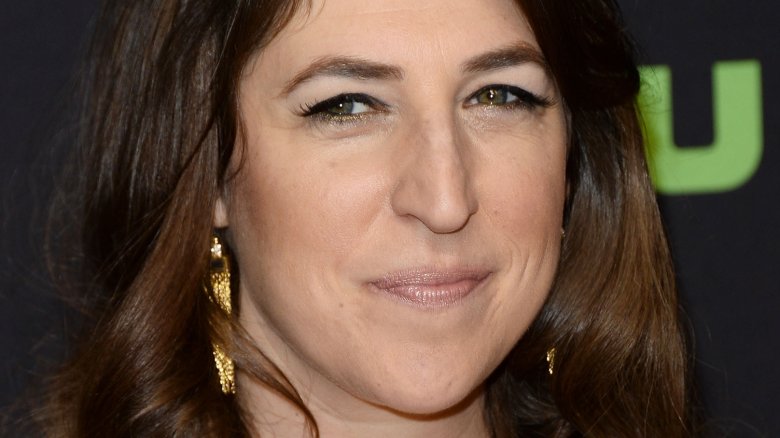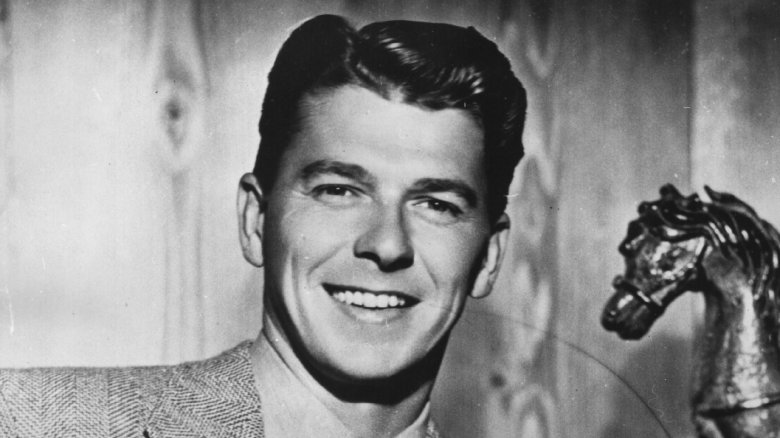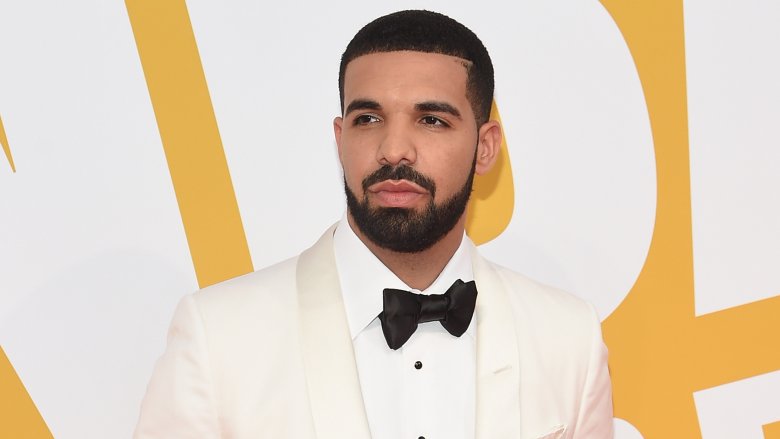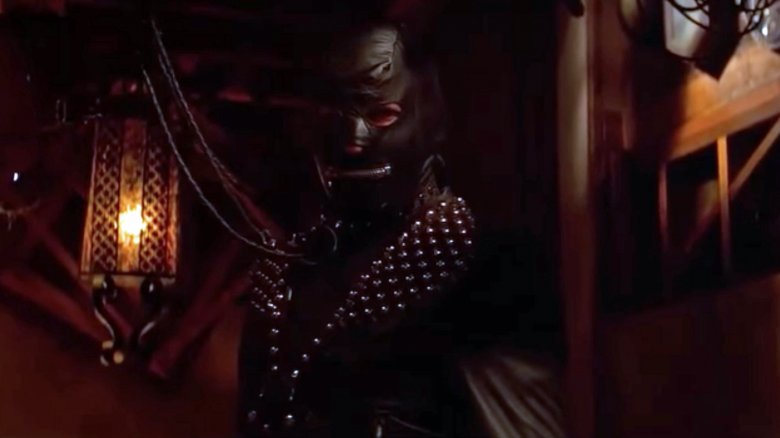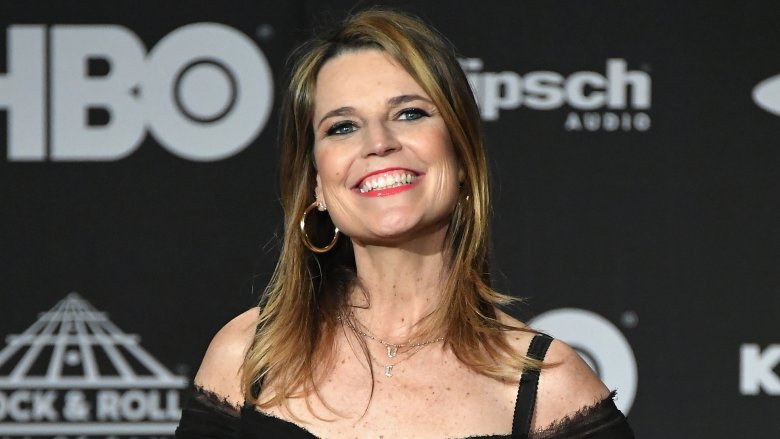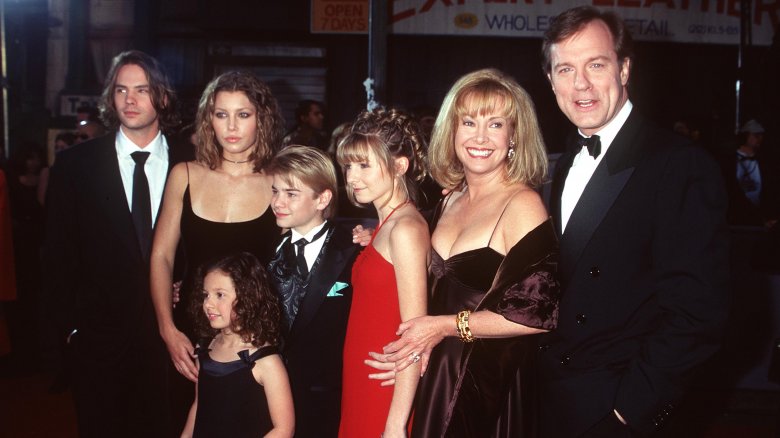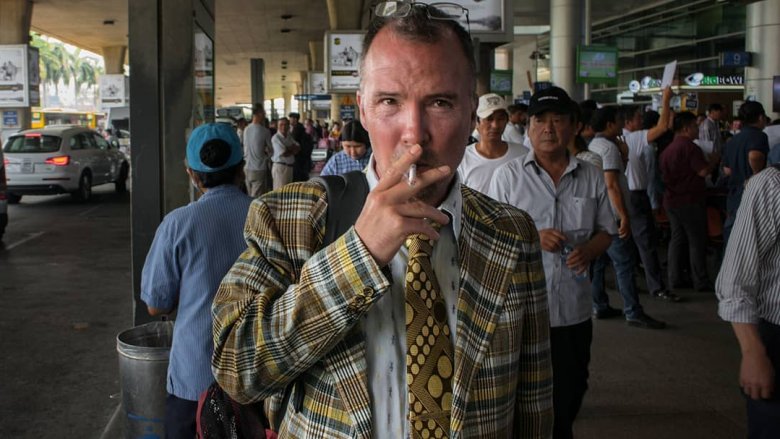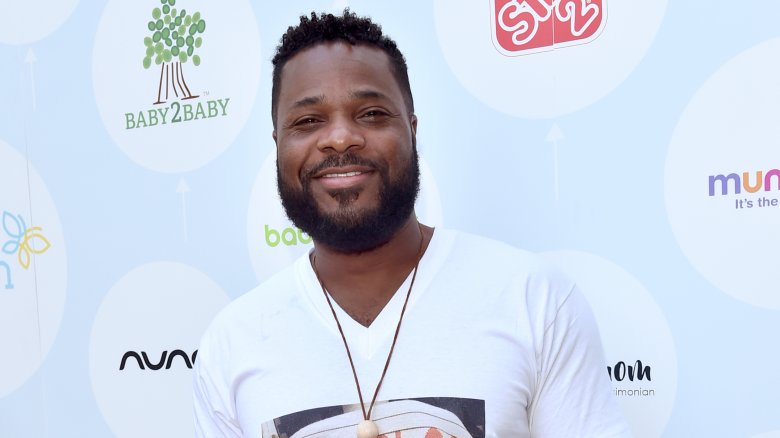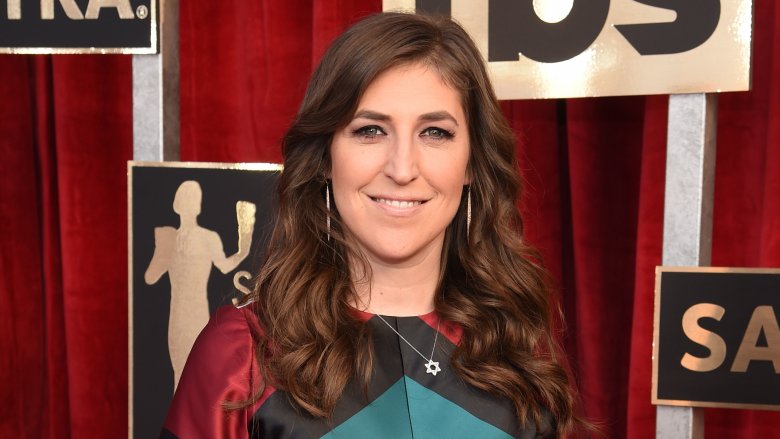Actors Who Make Nothing Off Of Residuals
We may receive a commission on purchases made from links.
Residuals are payments made to actors after the TV show, film, or theatrical production they starred in begins airing after its initial run. According to SAG-AFTRA (Screen Actors Guild‐American Federation of Television and Radio Artists), the trade organization that represents unionized actors, each production has its own structure for how residual payments occur based on "license agreements, the project's commercial viability and when and how often the product airs." However, as long as the production is on the air, the principal cast of the show is entitled to residuals.
For some actors, this means lots of money for the rest of their lives. The cast of Friends, for example, was still earning an astounding $20 million each per year from residuals in 2015, according to USA Today. Of course, not every show is Friends, and not every actor is so lucky.
The following folks fall into the latter category. Not only are they not kicking back and counting that sweet syndication money, in some cases they've lost out on opportunities that could have made them millions. These are the actors who make nothing off of residuals.
Every actor before the 1950s
For a long time, film actors got paid once for a gig and that was it, you know, kind of like how the rest of us earn a living. But in 1960, that all changed when Ronald Reagan, acting as temporary president of SAG, successfully negotiated a settlement with producers and the heads of major studios. (For you younger readers that may not know: President Reagan worked as an actor before making his way to the White House.)
According to the Charlton Heston biography, From My Cold, Dead Hands: Charlton Heston and American Politics, The Gipper convinced the powers that be to agree to pay residuals for all future productions and also as secured a $2.65 million payment for "all the television rights for the pictures made between 1948 and 1959." That money was then used to establish "the Guild's first pension and welfare plan."
It was a deal seemingly modeled after the shady one Regan's talent agency, MCA, had quietly negotiated a few years earlier in exchange for a waiver allowing MCA to produce its own television shows, which at the time, was not allowed under antitrust laws. As a result of that "backroom" deal, MCA made so much money it eventually acquired Universal Studios. However, MCA also started paying residuals to actors for reruns, a practice that eventually became an industry standard for both film and television actors alike.
Now that we've got the historical framework of residuals established, let's take a look at how some actors make nothing from them at all.
Drake's Degrassi money dried up
Canadian rapper Drake landed the No. 5 spot on Forbes' richest in hip-hop list for 2017 with a reported net worth of $90 million. His wildly successful albums, tours, and endorsement deals have all contributed to his ballin' bank account, but there's one thing on Drake's resume that isn't contributing much anymore: Degrassi.
Back when he was Aubrey Graham, a fledgling actor from Toronto, Drake got his big break on the high school melodrama Degrassi: The Next Generation. His role as Jimmy Brooks, a basketball star who becomes wheelchair bound after getting shot, even turned into a popular meme after Drake transitioned to music. Unfortunately, none of that translated to lifetime riches.
In July 2017, eight years after he last appeared on the series, Drake posted a photo of an $8.25 residual check to Instagram with the caption: "Degrassi money still coming in don't sleeeeeeeep..." We're not sure if Forbes took this into account, so for the sake of journalistic integrity, we'll go ahead and amend Drake's 2017 net worth to $9,000,008.25.
Bring out the crappy residual check
The only way you would recognize actor Steve Hibbert from his role in Pulp Fiction would be if he still sports the leather bodysuit, dog collar, and leash he wore in his brief scene. That's right, Hibbert played The Gimp in that nightmarish sequence in the pawn shop basement where, well... we all remember what happened down there, right? No need to revisit.
Anyway, speaking with Vulture, Hibbert said that the entire cast was paid scale (basically the Hollywood equivalent of minimum wage) since director Quentin Tarantino was still a relative unknown at the time. He didn't reveal his exact pay for the three hot, chafing days he spent on set, but he did say that he now gets $3 residual checks in the mail when the film airs on TV.
Sure, that seems laughably low, but keep in mind a few things: First, Hibbert had no lines. He literally stands around and grunts until he gets knocked out by Bruce Willis. Second, his part got cut from the version of the film that was edited for TV, so he is quite literally now being paid for nothing.
"These days, if I get a $3 check in the mail, I go, 'Oh, that's fun! I get to buy a latte on Pulp Fiction!'" Hibbert said. Turns out the Gimp was something of an optimist underneath all that fetish wear.
Vincent Price wasn't...thrilled about his payday from MJ
Horror legend Vincent Price made a significant contribution to Michael Jackson's classic zombie jam, "Thriller", when he performed the now infamous "rap" portion of the song. If you aren't familiar with Vincent Price, or the part of the song we're talking about, it's when you hear the creepy deep voice that begins by saying, "Darkness falls across the land..."
It was a small part that Price, according to his daughter Victoria's biography of him, accepted as a way to "appeal to younger audiences." In his eagerness to join the project, Victoria writes that her father accepted "a small honorarium" in compensation, and that he failed to "secure a royalty arrangement," which he later angrily regretted.
According to Legacy.com, Price revealed in an interview with Johnny Carson that the "small honorarium" was actually a payment of $20,000 which he accepted in lieu of "taking a percentage of album proceeds." Given that Thriller ended up becoming — and will likely stay — the best-selling album of all time, according to Business Insider, that was clearly a goof on Price's part.
This costly error was not lost on Price, who ended up resenting the King of Pop for not retroactively compensating him in the wake of the album's success. In fact, after it was reported that Jackson paid a settlement related to child molestation accusations, Victoria writes that her father remarked on the news by saying, "All I can say is that Michael Jackson f***ed me — and I didn't get paid for it!" Oof.
Too bad they couldn't morph into investment bankers
For Haim Saban, the creator of Mighty Morphin Power Rangers, the quirky early 90s action-adventure was the foundation for what became a multi-billion dollar empire of children's television and merchandise. For the stars of the original series, it was not that. Not even close.
The original Pink Ranger, Amy Jo Johnson, first shed light on the actors' dubious deal on a 2012 episode of the No Pink Spandex podcast, during which she revealed that she and the rest of the Rangers were paid around $600 per week and were given "zero" residuals.
This non-union-negotiated fee was actually their compensation for two episodes on account of the breakneck pace of the show's punishing production schedule, which the rest of the cast spoke about to HuffPost in 2014. "When we first got on the show we were doing six days a week, 12 to 15 hour days. ... You were like a machine," noted original Yellow Ranger, Karan Ashley.
"I could have worked the window at McDonalds and probably made the same money the first season," added original Red Ranger, Austin St. John, who also revealed to HuffPost that he ended up homeless after leaving the show, at times sleeping in his Jeep or "sleeping in a riverbed for a while." Yeesh.
"It was like the good the bad and the ugly, we kind of got it all," Ashley said of the overall experience. Um, what part about any of that was good?
Say it ain't Sharknado
NBC Today anchor Savannah Guthrie managed to one-up Mayim Bialik's paltry residual check with an Instagram post of her own that showed off the zero dollars she earned for some mystery project. "ooh. residual checks getting larger," Guthrie jokingly captioned the photo, which majorly piqued the interest of her fans.
After all, Guthrie is clearly not an actress, so why is she earning residual checks at all, even if they aren't worth the paper they're printed on? According to the Daily Mail, Guthrie had several cameos on NBC sitcoms, including The Michael J. Fox Show, 30 Rock, and 1600 Penn, which could all be the zilch-paying culprit.
The Mail also pointed out that an Instagram commenter asked if the check was from Guthrie's cameo in 2015's Sharknado 3: Oh Hell No! As far as we can tell, Guthrie never revealed where her steady stream of non-income is coming from, but if it was from SyFy's CGI-schlockfest, allow us to say that it is money well-earned.
7th Heaven falls from grace
One of the key elements to the payment of residuals is that a show has to actually be on the air in order for it to generate the continuing revenue necessary to share with the cast. 7th Heaven, the family drama about a minister, his wife, and their kids, was one of those timeless, wholesome shows that seemed like it was always going to get rerun by networks such as Hallmark, TV Guide Network, and Up TV.
And it was, until 2014, when lead actor Stephen Collins confessed to multiple instances of child abuse. After that, TV Guide and Up TV, which were "the last 2 channels airing the show in the U.S.," according to TMZ, both pulled the show from their schedules. Speaking with the tab, Caryn Ross, the momager to Niki and Sam Saletta, two child actors on the show, said that while the residual checks "weren't Seinfeld sized ... they'll still be missed."
According to The Hollywood Reporter, Up TV actually started running 7th Heaven again a few weeks later, then pulled it after ratings weren't great, then actually put it back on the air after fans repeatedly requested it on Facebook. As it stands at the time of this writing, both Up TV and TV Guide are reporting no upcoming airings of the show. However, it is available through Amazon Prime. What does that mean for the cast? We're not sure, but we hope for their sake it's a better deal than Savannah Guthrie got.
'Don't spend it all in one place'
Doug Stanhope is a comedian and former co-host of the second iteration of Comedy Central's The Man Show. He's also a guy who is known for his particular brand of scathing honesty about his personal life and show business, including revelations about how little he cares about having any kind of success in the latter.
To that end, he's made something of a habit of showcasing the tiny residual checks he's received for various TV gigs, like this $1.25 check from Tosh.0 that he posted to Twitter with the caption, "Just when I thought I was too broke to party on the holiday weekend, another fat @danieltosh residual check slams into the mailbox!"
In the comments, Stanhope wrote that he "always" signs the checks and auctions them off, rather than cashing them, and that seems to be true, at least, in the case of the $.79 check he got from his critically-acclaimed appearance on fellow comedian Louie CK's show, Louie.
According to WorthPoint, Stanhope included the no-dollar check in a since-closed eBay auction of "a treasure trove of vintage suits, sport jackets, football jerseys and other stage attire I've worn over the years and are now overtaking my closet as well as a bunch of memorabilia I don't remember from the crawl space." Of the Louie check, Stanhope wrote, "Don't spend it all in one place." We're guessing that wasn't a problem.
Networks said 'No' to The Cosby Show
As was the case with 7th Heaven, The Cosby Show got dumped from the airwaves after the eponymous show's star, Bill Cosby, faced mounting accusations of sexual assault from more than 50 women. One by one, the networks holding syndication deals with the landmark sitcom dropped the show from their schedules, and by July 2015, it was no longer on the air, according to Mic.
Malcolm-Jamal Warner, who played Theo Huxtable, told The Wrap there were definitely "financial repercussions" as a result of the show being pulled. He opened up slightly more on the subject during a guest spot on The Real (via Extra) when he said that the situation has "literally taking money out of my pocket." He also openly questioned why the work of controversial directors Woody Allen and Roman Polanski hasn't been pulled from the airwaves, as well as why 7th Heaven was still on the air after The Cosby Show got the boot.
Fortunately for Warner and the rest of his TV family, two smaller cable networks, Bounce TV and TV one, picked up The Cosby Show in late 2016 and early 2017. Though they won't generate anywhere near the $1.5 billion Forbes reported the show has earned throughout its many syndication deals, it will probably still be nice to resume getting those random "Hey, remember that show you were in 25 years ago?" checks.
The broke bunch
If there's one show from which you'd think the actors would still be receiving some money, it would have to be The Brady Bunch. After all, a quick Google search reveals that MeTV, Hallmark, and Hulu are all still advertising that they carry it, as of this writing. Since residual payments are supposed to last in perpetuity — even if those checks dwindle down into pocket change over a long enough timeline — the cast should still at least be getting some Insta-worthy checks, right? Wrong.
According to Eve Plumb, who played Jan, nobody's gotten a check "for many, many years." She actually said, "We are not making money off of it at all," with the exception of the occasional film that will pay for the rights to use a show clip. In those instances, Plumb told OK! magazine, "that's usually very low money."
Though she didn't get into the specifics of why the cast no longer collects residuals, Plumb offered the following advice to young stars: "Save the money and buy a house. Don't squander what you've got because it won't always last."
Seriously, how did this happen? Wait, did they give her cut to Marcia?
Making less than a dollar from Doogie
In February 2017, Variety reported that Mayim Bialik would likely be earning somewhere in the neighborhood of $450,000 per episode for the 11th and 12th seasons of The Big Bang Theory, CBS's nerd satire sitcom that she joined in its third season. Along with that role surely comes a healthy line of residual checks, as it has already made its way into syndication.
And don't forget about Blossom, the classic '90s sitcom that made Bialik a (constantly mispronounced) household name and allowed her to essentially retire from full-time acting and go to college, where she earned a doctorate in neuroscience.
So when Dr. Bialik showed off her hilariously small $.02 residual check for a guest appearance she did on a 1990 episode of Doogie Howser, M.D., it had to be with tongue-firmly-in-cheek for her to reference what a small amount of money she made on television. She even pointed out in her Instagram caption of the check photo, "that's right. GROSS was $0.02. NET to me: $0.01." We here at Nicki Swift sincerely hope she'll be able to manage in these troubling financial times.

